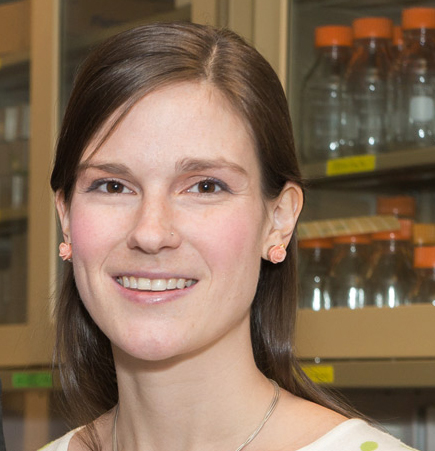
Megan O’Connor, PhD., of the Fuller laboratory receives NIH-sponsored post-doctoral training fellowship from the University of Washington Center for AIDS and STD. The fellowship will pay O’Connor a yearly stipend to complete her post-doctoral research that will take place at the Washington National Primate Research Center.
The fellowship will assist O’Connor’s research by covering her salary and making funds available for her experiments. In addition, the fellowship program provides O’Connor with educational and networking opportunities designed to improve her knowledge of sexually transmitted diseases and AIDS research while enhancing her personal development as a post-doctoral fellow.
O’Connor joined the Fuller lab in January of 2016. The lab investigates therapeutic and prophylactic DNA vaccines for HIV. They are also testing new adjuvants designed to stimulate both systemic and mucosal antibody and T cell responses.
“Our lab has a major focus on investigating and improving therapeutic HIV vaccines using the simian immunodeficiency virus (SIV) macaque model for AIDS,” says O’Connor. “This research will help us to better understand how we can improve vaccine efficacy.”
HIV in humans is very similar to SIV, which is found in many species of nonhuman primates. The Fuller lab currently has several ongoing macaque model vaccine studies, of which O’Connor is involved in, which are planned to run through 2021.
HIV and SIV infection creates a misbalance of two cell types in the gut during infection. The misbalance of T-regulatory (Treg) and T helper 17 (Th17) cells is associated with HIV/SIV progression. The goal of O’Connor’s project is to determine whether SIV vaccination also has an effect on these different cell types in the gut mucosa.
Using the SIV macaque model for AIDS, they investigate the ability of vaccines to therapeutically treat SIV infection and residual virus in the gut mucosa. Previous studies in the Fuller lab showed that therapeutic immunization with a DNA vaccine that induces responses in the gut mucosa resulted in a functional cure from AIDS, or durable control of viral replication when administered to chronically infected animals in combination with short-term treatment with antiretroviral drugs (immunotherapy). These studies also aim to define the role of mucosal responses, in particular, and other immune mechanisms underlying the response to vaccination, protection from infection, or induction of durable viral control.
According to the World Health Organization, 37 million people are living with HIV globally. Since the beginning of the epidemic, more than 70 million people have been infected by the disease and 35 million have died from it. There are currently 17 million people worldwide on antiretroviral therapies for HIV/AIDS. The most promising vaccine approaches from these studies may lead to future clinical testing of these strategies in HIV infected humans.
Learn more about the AIDS-related disease research being conducted at the WaNPRC.
Learn more about the STD/AIDS Research Training Fellowship Program from the UW Center for AIDS and STD.